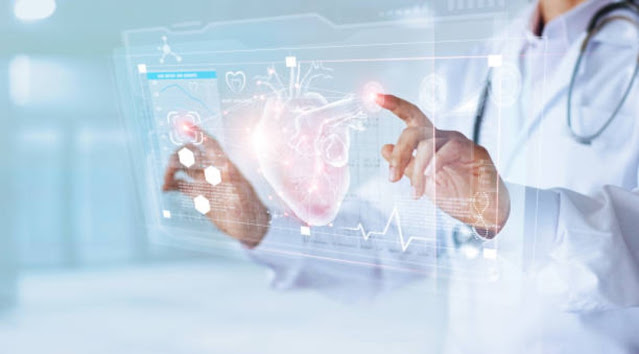
Introduction
Technology has become integral to the medical field,
revolutionizing healthcare delivery and transforming patient outcomes. From
advanced diagnostic tools to innovative treatment options, technology plays a
vital role in improving the quality, efficiency, and accessibility of
healthcare services. This article explores the various technologies in medical
health, their applications, benefits, and their impact on transforming the
healthcare landscape.
Body
Diagnostic Technologies
a) Imaging Technologies: Discuss the advancements in medical imaging technologies such as X-ray, ultrasound, magnetic resonance imaging
(MRI), and computed tomography (CT) scans, highlighting their role in accurate
and non-invasive disease diagnosis.
b) Laboratory Technologies: Explore laboratory technologies,
including molecular diagnostics, genetic testing, and point-of-care testing, in
diagnosing diseases, monitoring treatment efficacy, and facilitating
personalized medicine.
c) Wearable Devices and Biosensors: Discuss the emergence of
wearable devices and biosensors, enabling continuous monitoring of vital signs,
physical activity, and sleep patterns and facilitating early detection and
prevention of health issues.
Treatment Technologies
a) Minimally Invasive Procedures: Highlight the advancements
in surgical technologies, such as robotic-assisted surgery, laparoscopy, and
endoscopy, enabling less invasive procedures, reduced recovery time, and
improved patient outcomes.
b) Precision Medicine and Targeted Therapies: Explore how
technology has enabled the development of precision medicine, including
genomics, proteomics, and pharmacogenomics, allowing tailored treatment plans
based on an individual's genetic makeup.
c) Medical Devices and Implants: Discuss the role of medical
devices and implants, such as pacemakers, insulin pumps, prosthetics, and
artificial organs, in enhancing the quality of life, managing chronic
conditions, and restoring functionality.
Digital Health Technologies
a) Electronic Health Records (EHR): Discuss adopting
electronic health records, facilitating seamless sharing of patient information
among healthcare providers, enhancing care coordination, and improving patient
safety.
b) Telehealth and Telemedicine: Explore the use of
telehealth and telemedicine technologies, including virtual consultations,
remote patient monitoring, and mobile health apps, in improving access to
healthcare, especially in remote areas.
c) Health Information Exchange (HIE): Highlight the
importance of interoperability and health information exchange systems,
enabling secure and efficient sharing of patient data across different
healthcare providers and improving care continuity and patient outcomes.
Artificial Intelligence (AI) and Machine Learning
a) Medical Imaging and Diagnostics: Discuss the role of AI
and machine learning algorithms in medical imaging interpretation, aiding in detecting
and diagnosing diseases and reducing human error.
b) Clinical Decision Support Systems: Explore how AI-powered
clinical decision support systems assist healthcare professionals in making
evidence-based treatment decisions, predicting patient outcomes, and optimizing
care pathways.
c) Drug Discovery and Development: Highlight the
applications of AI and machine learning in accelerating drug discovery,
identifying potential drug targets, and optimizing drug formulations, leading
to more effective treatments.
Health Monitoring and Personalized Care
a) Remote Patient Monitoring: Discuss the use of remote
patient monitoring technologies, including wearable devices and mobile apps, in
tracking patients' health conditions, enabling early intervention, and reducing
hospital readmissions.
b) Personalized Health Tracking: Explore how technology
allows individuals to track their health parameters, such as heart rate, blood
pressure, and sleep patterns, empowering them to make informed decisions about
their health and well-being.
c) Patient Engagement and Education: Highlight the role of
technology in promoting patient engagement through online patient portals,
health education platforms, and virtual support communities, enhancing patient
knowledge and self-care management.
Conclusion
Technology in medical health has significantly impacted the
healthcare industry, enabling precise diagnostics, personalized treatments,
remote monitoring, and patient empowerment. These advancements have improved
healthcare outcomes, increased accessibility, and transformed the patient
experience. However, challenges related to data security, interoperability, and
equitable access to technology must be addressed to harness its potential fully.
As technology evolves, healthcare providers, policymakers, and stakeholders
must embrace and leverage these innovations to shape a future where
technology-driven medical health becomes the norm, delivering efficient,
cost-effective, and patient-centric care.